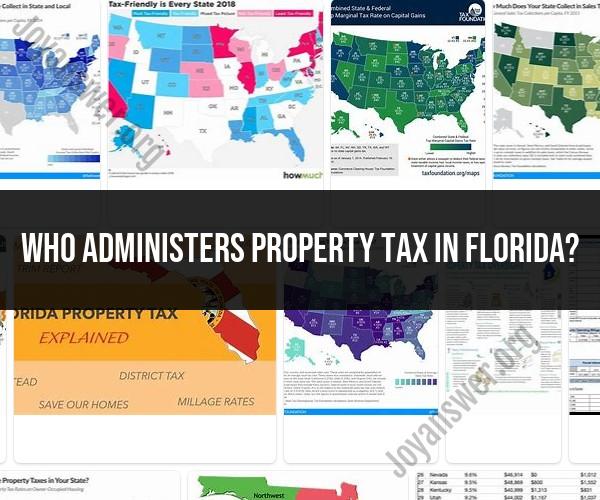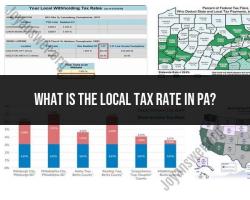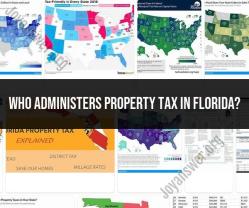Who administers property tax in Florida?
Property taxes are a crucial source of revenue for local governments in Florida. Property tax administration involves the assessment, collection, and management of property taxes to fund essential public services and infrastructure. Let's explore the key aspects of property tax administration in Florida:
1. Property Assessment
The property assessment process determines the value of real estate for tax purposes. Local property appraisers in each county are responsible for assessing the value of properties based on market conditions, location, and property characteristics. The assessed value serves as the basis for calculating property taxes.
2. Millage Rates
Millage rates, also known as tax rates, are set by local taxing authorities, including counties, municipalities, school districts, and special districts. The millage rate is applied to the assessed value of a property to calculate the property tax bill. Millage rates may vary by jurisdiction and are expressed in "mills," with one mill equal to one-thousandth of a dollar.
3. Property Tax Exemptions
Florida offers various property tax exemptions to eligible property owners. Common exemptions include the Homestead Exemption, which provides a reduction in assessed value for primary residences, and exemptions for seniors, veterans, and disabled individuals. These exemptions can result in significant savings on property taxes.
4. Taxable Value and Save Our Homes Cap
Florida's "Save Our Homes" amendment limits annual increases in assessed value for homesteaded properties. The cap prevents assessed values from increasing by more than a specified percentage (usually 3%) or the Consumer Price Index (CPI), whichever is lower. This provides stability and predictability in property tax bills for homeowners.
5. Property Tax Payment
Property tax bills are typically sent to property owners in November. The taxes can be paid in full or through installment payments. If taxes are not paid, the property can become subject to tax liens, and the local tax collector's office may initiate the tax sale process to recover unpaid taxes.
6. Appeals and Disputes
Property owners have the right to appeal their property assessments if they believe the assessed value is inaccurate or unfair. The appeals process varies by county and involves submitting evidence to support the claim of overvaluation. This process allows property owners to ensure their tax liability is based on a correct assessment.
7. Local Taxing Authorities
Various local taxing authorities, such as county commissions, city councils, and school boards, play a role in property tax administration. These authorities make decisions about budget allocations and tax rates to fund public services, schools, infrastructure, and more.
Conclusion
Understanding property tax administration is essential for property owners in Florida. By being aware of assessment processes, exemptions, payment options, and the role of local taxing authorities, property owners can effectively manage their tax obligations and contribute to the well-being of their communities.






